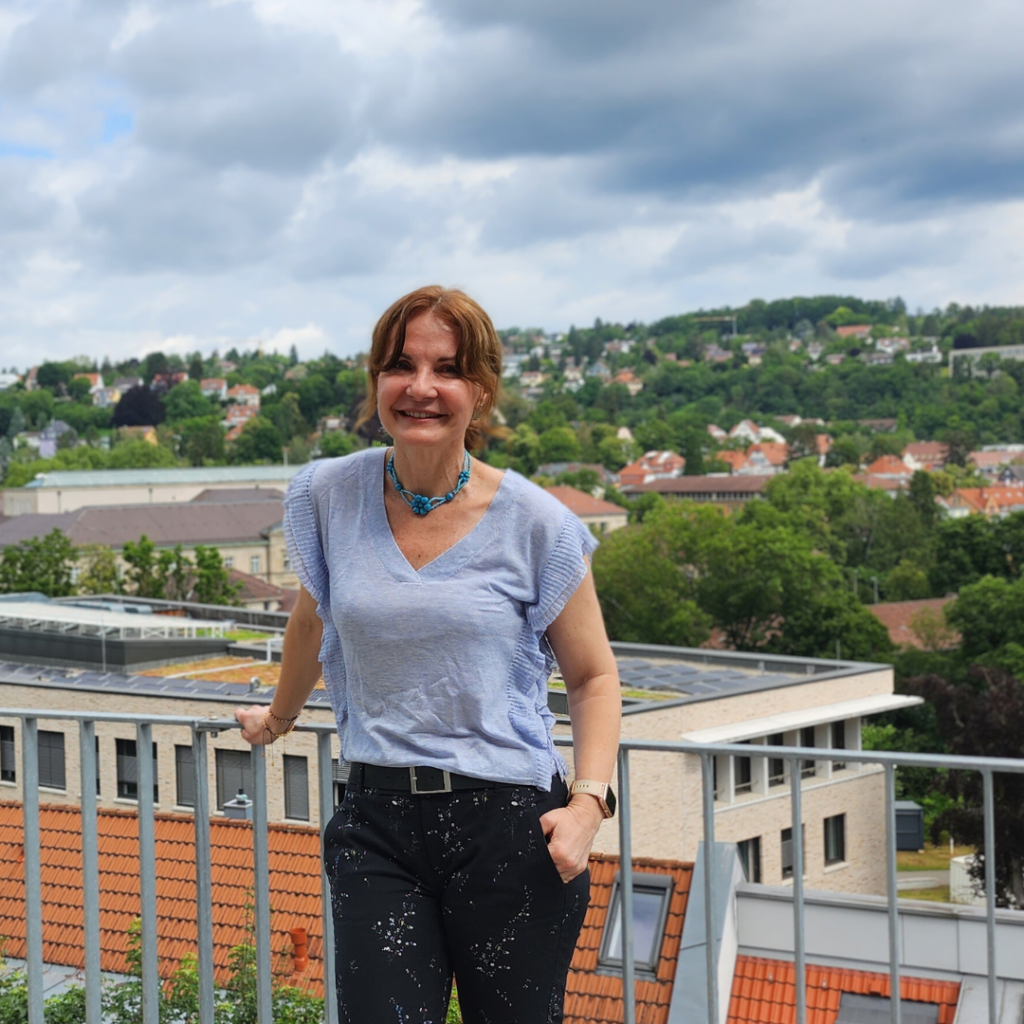Mittwoch, 10.07.2024, 11:00 Uhr, R 128d (Brechtbau)
Herzliche Einladung an alle KI- und Kunstinteressierten zum Vortrag von Dr. Maria del Mar García Jímenez am kommenden Mittwoch, 10.07.2024 um 11 Uhr in Raum 128d im Brechtbau!
Maria del Mar García Jímenez ist aktuell Gastwissenschaftlerin am Institut für Medienwissenschaft an der Universität Tübingen und dem RHET AI Center. Im Rahmen ihres Forschungsaufenthalts in Tübingen wird Maria del Mar nicht nur Teil der Tübinger Arbeitsgruppe sein, sondern auch Einblick in ihre eigene Forschung geben. Das Kolloquium am 10.07. findet zu Beginn ihres Aufenthalts in Tübingen statt, der bis zum 10.09.2024 andauern wird.

Abstract zum Thema des Kolloquiums
Artificial intelligence (AI) is profoundly transforming both artistic creation and its teaching, redefining the concepts of creativity and the role of the artist. In the realm of visual art production, AI facilitates the rapid and economical generation of works through algorithms that learn and replicate artistic styles, raising questions not only about the legitimacy of AI as a co-creator but also about the future of plastic and visual creation. Additionally, AI can enable new forms of collaboration and artistic exploration, democratizing access to the visual and symbolic production that characterizes art. The rapid development of AI has significantly impacted the basis of artistic creation, posing questions about the future of Visual Art in a world where technology plays an increasingly central role in creative processes.
Hinweis: Vortragssprache und Sprache im Kolloquium sind Englisch.
Über Dr. Maria del Mar García Jímenez
María del Mar ist Künstlerin und Dozentin für Bildende Kunst an der Universität Sevilla, Spanien und Mitglied der Forschungsgruppe HUM337: Plastische, Sequenzielle, Experimentelle Druckkunst und Neue Technologien. Theorie und Praxis. Ihre Expertise liegt im Künstlerischen Schaffen und der Forschung in der Kunst. Zu ihren Forschungsinteressen gehören die Erforschung der Bereiche Fotografie und den Verbindungen sowie Hybridisierungen von zeitgenössischer Kunst, Medien, digitaler Technologie und neuen Technologien, einschließlich ihrer soziopolitischen und kulturellen Auswirkungen.





